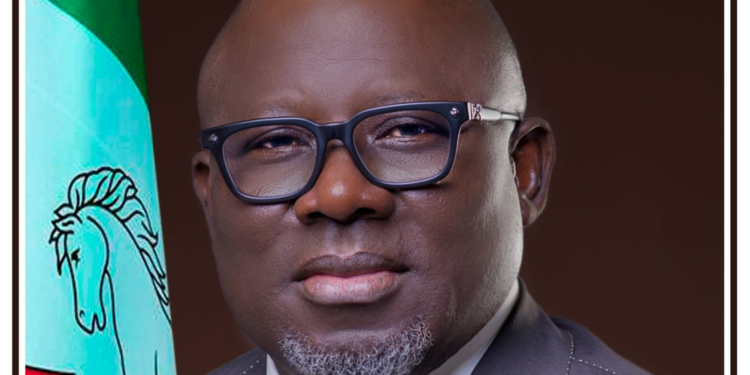Governor Sheriff Oborevwori of Delta State presented a budget of N936billion for the 2025 fiscal year to the State House of Assembly on Thursday. Titled the “Budget of Fiscal Consolidation,” the proposal aims to bolster the state’s economic growth, enhance infrastructure development, and improve public services.
In his address, Governor Oborevwori provided a detailed breakdown of the budget allocation, emphasizing its structure. The proposed budget consists of N348.7 billion for Recurrent Expenditure, accounting for 37.25% of the total, and a substantial N587 billion earmarked for Capital Expenditure, representing 62.75%.
Governor Oborevwori attributed his rise to several factors, primarily the realignment of the exchange rate, which has resulted in increased allocations from the Federal Allocation Account Committee (FAAC) and other related revenue streams.
Additionally, there has been notable progress in Delta’s Internally Generated Revenue (IGR), contributing to the overall budget expansion. “The increase was largely because of the realignment of the exchange rate, which resulted in higher FAAC allocations and associated revenues. This is in addition to a corresponding improvement in our Internally Generated Revenues this year,” he explained.
The governor emphasized the state’s strategic focus on vital sectors, aiming to enhance infrastructure, human capital development, and poverty alleviation.
The proposed budget sets aside significant funds for critical areas such as road infrastructure (N230 billion), education (N67.42 billion), health (N30.55 billion), water resources (N11.03billion), and agriculture (N7 billion).
These investments are intended to boost economic activities and improve the quality of life for the residents of Delta State. “The state government intends to achieve these through prudent management of our resources and prioritising expenditures on health, education, agriculture, water resources, environment, housing, as well as women and youth empowerment programs,” Oborevwori said.
Governor Oborevwori appealed to the State House of Assembly for the swift passage of the appropriation bill, emphasizing the urgency of implementing the proposed projects and programs.
He highlighted that the budget is geared towards addressing pressing needs and sustaining the momentum of ongoing developmental projects across the state. “We are committed to ensuring that the fiscal year 2025 is marked by substantial progress in physical infrastructure, job creation, wealth creation, and human capital development,” he assured.
In his response, the Speaker of the Delta State House of Assembly, Mr. Dennis Guwor, praised Governor Oborevwori for his visionary leadership and fiscal discipline. He acknowledged the impressive development strides witnessed under the governor’s administration, particularly the continuation and completion of projects initiated by previous administrations.
Guwor commended Oborevwori for his prudent financial management, noting that during his tenure as Speaker, he returned over N500 million to the state coffers and saved over N14 billion for local government councils across Delta State.
The Speaker further urged all Ministries, Departments, and Agencies (MDAs) of the government to cooperate fully with the Assembly’s committees during the forthcoming budget defense sessions.
He stressed the importance of seamless collaboration to facilitate a thorough review process and timely passage of the appropriation bill. “We look forward to a constructive engagement with all MDAs to ensure that this budget meets the developmental aspirations of our people,” Guwor remarked.
Following the governor’s presentation, the Majority Leader of the House, Mr. Emeka Nwaobi, moved a motion for the Assembly to accept the appropriation bill for consideration. The motion was seconded by Mrs. Marilyn Okowa-Daramola, representing the Ika North East constituency.
The legislative process now sets in motion the detailed scrutiny of the budget proposal, with the Assembly expected to work towards its timely passage, ensuring that the state can implement its planned projects and initiatives without delays.


































